[UK] – On Monday 3rd May, nearly 100 attendees joined a landmark webinar organised in partnership by The Global Tuna Alliance and The Pew Charitable Trust. The event shed light on the crucial role that the European market can play in securing sustainable tuna fisheries. As we enter a key period of tuna Regional Fisheries Management Organisation (RFMOs) meetings – where vital decisions will be made about the future of global tuna fisheries – the webinar also worked to elucidate how the EU tuna RFMO positions are developed, and to highlight areas in which the European market can support better decision-making.
The three-hour event was opened by Maria Damanaki, Former EU Commissioner for Maritime Affairs and Fisheries. Ms Damanaki shared her support for the event and was pleased to see the spotlight being shone on the European Union, as it “plays an invaluable role in the tuna supply chain”. Ms Damanaki’s message was clear, as she ended her talk by asking the audience to be present and to fully engage with RFMOs, saying: “Politicians can’t do it alone, you have to jump in and you have to be heard…leadership can’t be there without partnership.”
Following Ms Damanaki’s introduction, attendees from across European retailers, supply-chain companies and associated stakeholders, were asked to support a declaration calling on the EU to safeguard the supply of sustainably caught tuna by championing and advancing better Harvest Strategies as a priority during the 2021 RFMO season, and to improve its engagement with stakeholders when developing the EU positions at RFMOs. 76% of attendees agreed they would support the declaration.
The webinar’s ambitious agenda featured informative presentations from a number of noteworthy panellists. Moderated by Steven Adolf, renowned researcher on tuna, economist, and writer, and Dr Tom Pickerell, Executive Director of the Global Tuna Alliance, the audience were guided through three lively panel sessions. The first session included a comprehensive overview of RFMOs, including how they operate, and how they can be engaged effectively by the EU market. Anders Jessen, Head of Unit for Regional Fisheries Management Organisations for DG MARE, also contributed to the session with an illuminating insight into the EU’s involvement in tuna RFMOs, and how decisions are made.
Speakers in the session stressed there is currently a disproportionate voice from within the catching sector especially when influencing tuna RFMOs. Recommendations to counter this imbalance included retailers, buyers and processors joining representative organisations like the Global Tuna Alliance to build ‘collective pressure’, and take a bold approach to engage directly with RFMOs by attending meetings, writing letters, and using their collective brand power to influence change.
The second panel included an overview of the tools and policies required to secure a sustainable supply of seafood, including a 101 on Harvest Strategies, an analysis of the Port State Measures Agreement and the importance of its implementation to seafood buyers, and a striking talk about observer coverage by Mark Zimring of The Nature Conservancy. Mark stated that Electronic Monitoring (EM) has real potential to address several issues in sustainable tuna fisheries on-the-water, and without that transparency, Mark boldly stated that “it is almost impossible to have confidence that seafood products… are harvested legally, sustainability and without labour abuses, unless you are getting that granular data off the boats…” Mark recommended that retailers request EM from their suppliers.
The webinar concluded with voices of the retail market, who shared their views on the current state of RFMO policies and how they are endangering tuna supply to the EU market, as well as the role the EU market can and should be playing to influence policy change. The floor was given to two major retailers – Tesco and the Aldi South Group – and a global brand, Princes.
Helena Delgado Nordmann, Responsible Sourcing Manager at Tesco urged other retailers, brands, buyers and sourcers to ‘think outside the box’, to form ‘unexpected partnerships’ and to think about what could be done to improve the effectiveness of RFMO meetings. Niklas Wehner of the Aldi South Group introduced their new International CSR strategy, within which seafood is highlighted as a high priority supply chain. As part of Aldi’s new CSR strategy, the retailer made the well-received announcement that the, and Aldi North, would be joining the Global Tuna Alliance as part of their ‘Partnering for Change’ strategy.
The session ended with Chris Shearlock, Fish Sustainability Manager from Princes who presented the work of Princes in the Indian Ocean tuna fisheries’ sustainability, which is of critical importance to their business. Chris outlined Princes’ EU ‘asks’ which included the EU taking a leadership role, standing up for science-based management decisions, and to engage early with RFMO contracting parties so that “we can hit the ground running when we get into conference season”.
The wrap-up session held a rerun of the poll on the proposed declaration. This time 89% of attendees agreed they would pledge to support the declaration. The event closed with two impactful conclusions from Steven Adolf and Dr Tom Pickerell, emphasising collaborative and early action are both essential at RFMO decision making level, and that the “outcomes from this event will be a vital input to the many groups working on tuna sustainability, including DG Mare.”
The slides are available on the GTA website.
Notes to editors
The Global Tuna Alliance is an independent group of retailers and tuna supply chain companies working collectively to generate a step-change in sustainable tuna management across the world.
